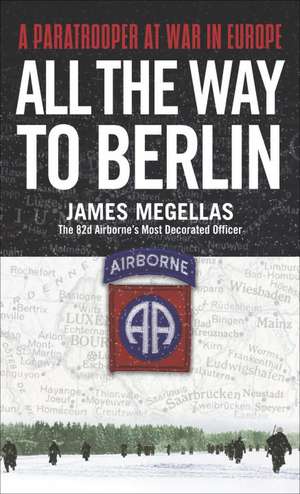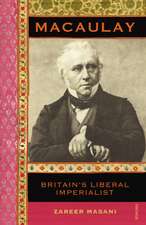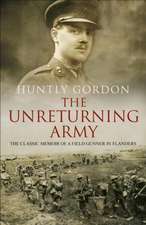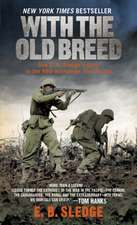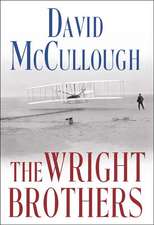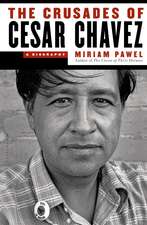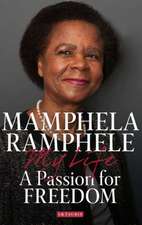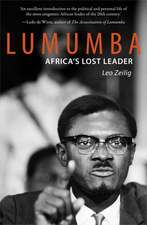All the Way to Berlin: A Paratrooper at War in Europe
Autor James Megellasen Limba Engleză Paperback – 29 feb 2004
In October 1943, when most of the 82d departed Italy to prepare for the D-Day invasion of France, Lt. Gen. Mark Clark, the Fifth Army commander, requested that the division’s 504th Parachute Infantry Regiment, Maggie’s outfit, stay behind for a daring new operation that would outflank the Nazis’ stubborn defensive lines and open the road to Rome. On 22 January 1944, Megellas and the rest of the 504th landed across the beach at Anzio. Following initial success, Fifth Army’s amphibious assault, Operation Shingle, bogged down in the face of heavy German counterattacks that threatened to drive the Allies into the Tyrrhenian Sea. Anzio turned into a fiasco, one of the bloodiest Allied operations of the war. Not until April were the remnants of the regiment withdrawn and shipped to England to recover, reorganize, refit, and train for their next mission.
In September, Megellas parachuted into Holland along with the rest of the 82d Airborne as part of another star-crossed mission, Field Marshal Montgomery’s vainglorious Operation Market Garden. Months of hard combat in Holland were followed by the Battle of the Bulge, and the long hard road across Germany to Berlin.
Megellas was the most decorated officer of the 82d Airborne Division and saw more action during the war than most. Yet All the Way to Berlin is more than just Maggie’s World War II memoir. Throughout his narrative, he skillfully interweaves stories of the other paratroopers of H Company, 504th Parachute Infantry Regiment. The result is a remarkable account of men at war.
From the Hardcover edition.
Preț: 54.36 lei
Nou
Puncte Express: 82
Preț estimativ în valută:
10.40€ • 10.75$ • 8.66£
10.40€ • 10.75$ • 8.66£
Carte disponibilă
Livrare economică 04-18 martie
Preluare comenzi: 021 569.72.76
Specificații
ISBN-13: 9780891418368
ISBN-10: 0891418369
Pagini: 416
Dimensiuni: 106 x 176 x 27 mm
Greutate: 0.2 kg
Ediția:Mass Market.
Editura: Presidio Press
ISBN-10: 0891418369
Pagini: 416
Dimensiuni: 106 x 176 x 27 mm
Greutate: 0.2 kg
Ediția:Mass Market.
Editura: Presidio Press
Extras
I
At War
On 7 December 1941, when the Japanese attacked Pearl Harbor, I was a senior at Ripon College, in Ripon, Wisconsin, expecting to complete my bachelor of arts studies and looking forward to graduating the following June. At the time, the future was uncertain. The country had suffered through the Great Depression of the 1930s, and prospects of a liberal arts graduate finding a suitable niche in the workplace appeared bleak. War clouds were gathering in Europe and the Pacific, and German submarines were prowling off the Atlantic coast, attacking U.S. shipping destined for Great Britain. A military buildup was going on in the United States, and fervor to enter the war on the side of the Allies was growing. I also was in my final year of reserve officer training at Ripon College and, upon graduation, would receive a second lieutenant's commission in the U.S. Army. Given the situation, even before Pearl Harbor, it was almost certain that the new crop of Ripon officers would be ordered to active duty. The universal draft was instituted in 1940, so there was a growing need for officers to lead newly recruited enlisted men.
The Japanese attack on Pearl Harbor ended all the uncertainties I might have had concerning my future, at least for the short term. The United States was at war. This was stunning, and my knee-jerk reaction was to drop out of school (even though graduation was only about six months away) and enlist in the army. This reaction was soon dispelled when an accelerated schedule for graduation was announced. The best course of action would be for me to stay in school and receive a commission, then go on active duty. Graduation was set a month earlier than scheduled, at which time we would also receive our commissions and active duty orders. In the meantime, our Reserve Officers' Training Corps (ROTC) instruction became more intense and took on greater significance. The only questions remaining were where and how soon we would be on duty. Everything else became mundane. Academic studies, homework, and term papers began to suffer from lack of priority. Although it was still important to complete school and receive a degree--an officer's commission depended upon completion of studies--for the next six months, concentration on anything but the war was difficult.
The nation responded vigorously to the mobilization, with young men forming long lines at recruiting offices, volunteering for service. Factories turning out the sinews of war worked overtime. Women were replacing men who had answered the call to serve. Legislation establishing priorities for the use of essential resources was quickly approved. Victory gardens replaced lawns; sewing and knitting were in vogue. Patriotism knew no bounds as the nation mobilized for war. It was the defining moment for my generation.
On the day of graduation--28 May 1942--when I walked across the stage dressed in a black cap and gown, I was given a diploma in my left hand and an officer's commission in my right. I was a second lieutenant of infantry in the U.S. Army. Only moments later, I received orders assigning me, along with six others, to report for duty on 8 June 1942 at Fort Knox, Kentucky. I was twenty-five years old.
Eight years earlier, I had graduated from high school. In 1934, during the throes of the Great Depression, continuing the education of the third born in an immigrant family of seven children had not been an option. Struggling to provide the basic necessities of life, my father was laid off more than he worked at the local leather-tanning factory. My brother George, nine years my elder, had dropped out of school after the eighth grade. He had found a job setting pins in a bowling alley. We were, by any economic definition, a poor family, but we were rich in love and tradition. Adversity had brought us even closer. With a high school diploma in hand, I would take my turn helping to put food on the table. Every morning I made the rounds of local factory employment offices. The answer was always the same. In 1934, a high school graduate could not beg, borrow, or steal a job.
In August 1934 I heard that the Civilian Conservation Corps (CCC) provided clean outdoor work. I applied, was accepted, and in October found myself in the north woods of Wisconsin. The CCC transformed me from a seventeen-year-old kid to a working man. I ate three wholesome meals a day, kept regular hours, and worked outdoors in all kinds of weather in a healthy environment. More importantly, the CCC taught me discipline, self-reliance, organization, and how to work and live as part of a unit. Every morning we stood reveille and answered roll call; in the evening, it was retreat and lowering the flag. At ten o'clock, it was lights out in the barracks. We wore surplus army khakis, slept on army cots with army blankets, and on Saturdays we stood at barracks and personal inspection. Two reserve officers--a captain and a lieutenant--ran the camp. They received officer's pay and benefits much greater than our "dollar a day."
This experience was one of the reasons I sought a reserve officer's commission when I entered Ripon College in 1937. In a tight labor market, a reserve officer's commission could be a big plus and might open the door to a job not available otherwise. Also, in the event I was called to active duty, I would enter as an officer. The CCC was not in the true sense military duty, but it was the closest thing to it at the time.
After leaving the CCC, I worked for a local construction company; the pay was good and I was able to put away some money. I entered Ripon College, some twenty miles from home, encouraged by its football coach, and with two job offers that would pay my room and board. I would repay tuition and other costs with monthly pay deductions after I went on active duty.
At the start of my junior year at Ripon, a notice appeared on our ROTC bulletin board that the U.S. Army Air Corps was accepting applications for pilot training. To qualify as a cadet, an applicant had to have a private pilot's license or had to have successfully completed two years of college and be able to pass a rigid physical examination. Although I had never been in an airplane, the thought of becoming an officer and a pilot in what was a fledgling branch of the army was too strong to resist. I applied, passed the physical examination, and was accepted. In December 1939, I dropped out of college and proceeded to Tulsa, Oklahoma, to begin the first phase of intensive training. The planes used for training were of World War I vintage--biwing Wright Whirlwind Jennys with dual open cockpits and stick controls.
I gave it my best effort, but my career in the Air Corps was short-lived. I did not qualify to advance to the second phase of training. I'd had my heart set on becoming a pilot, and the failure had a demoralizing effect on me. After knocking around the Southwest for a while, I decided to return to Ripon College.
In my senior year, I took advantage of a new U.S. government program designed for college students to receive civilian flight training. The training was held at the nearest civilian airport, and the trainers were small single-engine airplanes. Compared to my previous flight training in the army, I found flying a small Cessna a snap. I completed my ground school course and flight training and was granted a private pilot's license.
All this was behind me as I packed my bags and prepared to report to Fort Knox in June 1942. It is said that the past is a prologue. My experience of hard work, adversity, and challenges prepared me for what lay ahead when later I found myself in combat.
II
The Call to Arms
On 8 June 1942, just ten days after graduating and receiving my commission, I reported for duty at Fort Knox, Kentucky, assigned to the armored forces training center.
On 10 June I wrote my first letter home:
This place is really huge. It is expanding very rapidly. Armored Forces is a comparatively new branch of the Army and offers a good opportunity for advancement.
Starting this Saturday, we will go through eight weeks of Armored Force School. In this course, we will review everything we've had so far, plus what we do not know about Armored Force. We will have school from morning until night. We will cover a lot of ground and we will have a lot of studying and hard work ahead. The Army really means business now.
In the school course we will pursue, we will study and fire many automatic weapons, besides driving a two and a half ton truck, a light tank, and a medium tank.
We eat in the officers' mess. The food costs us a dollar a day, but is very good. We live in barracks and have an orderly who cleans out our rooms and shines our shoes. We pay him three dollars a month. We also have officers' clubs to which we belong and we pay three-dollar monthly dues for this privilege. Our laundry comes to about five dollars a month. All this is paid out of our wages of $168 a month. So you see, an officer isn't as well off as some people might think.
This letter, one of the many I would write home, pretty well summed up my initial reaction to my first days of active duty. I was happy to be in the armored forces. It was one of the combat arms, and, as a tanker, I was looking forward to seeing combat. I was thankful that I was not assigned to one of the support branches of the army, where the likelihood of seeing combat was next to nothing. Also, being assigned to a relatively new branch would provide an opportunity for advancement up the officers' ranks. I viewed the war as meaning combat and looked forward to extended service as a tanker.
But that was not to be the case. In the army, nothing is for certain or forever. On 15 June, just one week after I reported for duty at Fort Knox, I was called out of the morning formation and told to report to the adjutant's office. I was being transferred immediately, although I didn't know at the time that I would be going into the signal corps. The next day I sent the following telegram home: "I'm being transferred to Fort Monmouth, New Jersey, tomorrow. Will send address when I arrive." I had no choice but to proceed directly to Fort Monmouth. I was disappointed with my new assignment for three reasons: I did not feel I had the technical background for service in the field of communications; I was leaving my Ripon College colleagues; and, most importantly, I was being transferred from a combat arm to a service arm, where seeing combat was not likely. I could not envision myself killing an enemy soldier with a pair of pliers. The signal corps was given priority in identifying and recruiting officers who it felt were qualified to meet the corps' rapidly expanding needs.
On 20 June I reported for duty at Fort Monmouth to begin an intensive twelve-week course focusing primarily on signal communications, circuit diagrams, line route maps, overlays, and field orders. On 2 July I wrote my brother Louis: "The Signal Corps right now is taking officers who have had any physics or math out of all branches of the service. The Signal Corps needs officers so badly that they will not let anyone transfer to something else."
On 21 July I wrote to Louis again: "It's all classroom work, no getting outside. We have school six days a week from 7:30 a.m. until 5 p.m., and sometimes at night. Besides this they give us homework to do. Boy, this sure is getting me down."
I never doubted that the signal corps was an important branch of the service, and in combat has a vital job to do; it just was not for me.
Shortly after I arrived at Fort Monmouth, I read in the Army Times that another new branch of the army, the glider pilot corps, was seeking volunteers. It was given top priority for officer recruitment. Among the several qualifications was a valid current private pilot's license. Happy day! I immediately applied, then waited. I was hopeful that I might still see action if I became a glider pilot.
On 2 July I wrote to my sister Catherine: "This school [signal corps] will last 12 weeks, if I'm here that long. When we finish that course, we will probably be sent out as Division Signal officers. I'd like to get into some other branch of service. I have asked for glider pilot and am even trying to get in the Commandos."
I was pursuing every possible avenue that might get me into a combat unit. But nothing developed, so I continued in the signal corps school. On 13 October I graduated and received my diploma. I was a full-fledged signal corps officer. On that date, I also received orders assigning me to the 64th Signal Battalion, located at Fort Meade, Maryland, fifteen miles north of Washington. So for the third time since 8 June, I packed my bags and headed for another post.
I was just getting settled down as a signal officer when I was notified that my application for transfer to the glider pilot corps was approved. The battalion commander was upset with the news, telling me how much the signal corps had spent training me and how badly it needed signal officers. He implied that the least I was guilty of was disloyalty. I was undeterred; my mind was set on being in a branch where combat action was possible.
On 5 November my brief tour of duty as a signal officer ended. I was bound for Lubbock, Texas, assigned to the Lubbock Army Flying School (LAFS) in what would be the first stop in my quest to be a glider pilot. I reported for duty on the morning of 9 November. I was now in the United States Army Air Corps. In less than six months, I was wearing my fourth different service insignia: Infantry, Armored Force, Signal Corps, and Air Corps.
On the day the first American troops went ashore in Casablanca, Africa, the first American teenager was killed in combat in the European theater of operations. I was eating Texas beef and living the life of Riley. Such are the fortunes of war.
I didn't realize it at the time, but my stay in the Air Corps would be temporary. In the next few months, I would be in and out of a number of air bases. I was able to retrace my footsteps and revisit those fields from letters I had written home. On 12 November, shortly after my arrival at Lubbock, I wrote to my brother Louis: "I haven't been near a glider. This is not a glider field, and we will be here only a couple of days more . . . and then will be sent out to start training. . . . I sure am anxious to get going."
At War
On 7 December 1941, when the Japanese attacked Pearl Harbor, I was a senior at Ripon College, in Ripon, Wisconsin, expecting to complete my bachelor of arts studies and looking forward to graduating the following June. At the time, the future was uncertain. The country had suffered through the Great Depression of the 1930s, and prospects of a liberal arts graduate finding a suitable niche in the workplace appeared bleak. War clouds were gathering in Europe and the Pacific, and German submarines were prowling off the Atlantic coast, attacking U.S. shipping destined for Great Britain. A military buildup was going on in the United States, and fervor to enter the war on the side of the Allies was growing. I also was in my final year of reserve officer training at Ripon College and, upon graduation, would receive a second lieutenant's commission in the U.S. Army. Given the situation, even before Pearl Harbor, it was almost certain that the new crop of Ripon officers would be ordered to active duty. The universal draft was instituted in 1940, so there was a growing need for officers to lead newly recruited enlisted men.
The Japanese attack on Pearl Harbor ended all the uncertainties I might have had concerning my future, at least for the short term. The United States was at war. This was stunning, and my knee-jerk reaction was to drop out of school (even though graduation was only about six months away) and enlist in the army. This reaction was soon dispelled when an accelerated schedule for graduation was announced. The best course of action would be for me to stay in school and receive a commission, then go on active duty. Graduation was set a month earlier than scheduled, at which time we would also receive our commissions and active duty orders. In the meantime, our Reserve Officers' Training Corps (ROTC) instruction became more intense and took on greater significance. The only questions remaining were where and how soon we would be on duty. Everything else became mundane. Academic studies, homework, and term papers began to suffer from lack of priority. Although it was still important to complete school and receive a degree--an officer's commission depended upon completion of studies--for the next six months, concentration on anything but the war was difficult.
The nation responded vigorously to the mobilization, with young men forming long lines at recruiting offices, volunteering for service. Factories turning out the sinews of war worked overtime. Women were replacing men who had answered the call to serve. Legislation establishing priorities for the use of essential resources was quickly approved. Victory gardens replaced lawns; sewing and knitting were in vogue. Patriotism knew no bounds as the nation mobilized for war. It was the defining moment for my generation.
On the day of graduation--28 May 1942--when I walked across the stage dressed in a black cap and gown, I was given a diploma in my left hand and an officer's commission in my right. I was a second lieutenant of infantry in the U.S. Army. Only moments later, I received orders assigning me, along with six others, to report for duty on 8 June 1942 at Fort Knox, Kentucky. I was twenty-five years old.
Eight years earlier, I had graduated from high school. In 1934, during the throes of the Great Depression, continuing the education of the third born in an immigrant family of seven children had not been an option. Struggling to provide the basic necessities of life, my father was laid off more than he worked at the local leather-tanning factory. My brother George, nine years my elder, had dropped out of school after the eighth grade. He had found a job setting pins in a bowling alley. We were, by any economic definition, a poor family, but we were rich in love and tradition. Adversity had brought us even closer. With a high school diploma in hand, I would take my turn helping to put food on the table. Every morning I made the rounds of local factory employment offices. The answer was always the same. In 1934, a high school graduate could not beg, borrow, or steal a job.
In August 1934 I heard that the Civilian Conservation Corps (CCC) provided clean outdoor work. I applied, was accepted, and in October found myself in the north woods of Wisconsin. The CCC transformed me from a seventeen-year-old kid to a working man. I ate three wholesome meals a day, kept regular hours, and worked outdoors in all kinds of weather in a healthy environment. More importantly, the CCC taught me discipline, self-reliance, organization, and how to work and live as part of a unit. Every morning we stood reveille and answered roll call; in the evening, it was retreat and lowering the flag. At ten o'clock, it was lights out in the barracks. We wore surplus army khakis, slept on army cots with army blankets, and on Saturdays we stood at barracks and personal inspection. Two reserve officers--a captain and a lieutenant--ran the camp. They received officer's pay and benefits much greater than our "dollar a day."
This experience was one of the reasons I sought a reserve officer's commission when I entered Ripon College in 1937. In a tight labor market, a reserve officer's commission could be a big plus and might open the door to a job not available otherwise. Also, in the event I was called to active duty, I would enter as an officer. The CCC was not in the true sense military duty, but it was the closest thing to it at the time.
After leaving the CCC, I worked for a local construction company; the pay was good and I was able to put away some money. I entered Ripon College, some twenty miles from home, encouraged by its football coach, and with two job offers that would pay my room and board. I would repay tuition and other costs with monthly pay deductions after I went on active duty.
At the start of my junior year at Ripon, a notice appeared on our ROTC bulletin board that the U.S. Army Air Corps was accepting applications for pilot training. To qualify as a cadet, an applicant had to have a private pilot's license or had to have successfully completed two years of college and be able to pass a rigid physical examination. Although I had never been in an airplane, the thought of becoming an officer and a pilot in what was a fledgling branch of the army was too strong to resist. I applied, passed the physical examination, and was accepted. In December 1939, I dropped out of college and proceeded to Tulsa, Oklahoma, to begin the first phase of intensive training. The planes used for training were of World War I vintage--biwing Wright Whirlwind Jennys with dual open cockpits and stick controls.
I gave it my best effort, but my career in the Air Corps was short-lived. I did not qualify to advance to the second phase of training. I'd had my heart set on becoming a pilot, and the failure had a demoralizing effect on me. After knocking around the Southwest for a while, I decided to return to Ripon College.
In my senior year, I took advantage of a new U.S. government program designed for college students to receive civilian flight training. The training was held at the nearest civilian airport, and the trainers were small single-engine airplanes. Compared to my previous flight training in the army, I found flying a small Cessna a snap. I completed my ground school course and flight training and was granted a private pilot's license.
All this was behind me as I packed my bags and prepared to report to Fort Knox in June 1942. It is said that the past is a prologue. My experience of hard work, adversity, and challenges prepared me for what lay ahead when later I found myself in combat.
II
The Call to Arms
On 8 June 1942, just ten days after graduating and receiving my commission, I reported for duty at Fort Knox, Kentucky, assigned to the armored forces training center.
On 10 June I wrote my first letter home:
This place is really huge. It is expanding very rapidly. Armored Forces is a comparatively new branch of the Army and offers a good opportunity for advancement.
Starting this Saturday, we will go through eight weeks of Armored Force School. In this course, we will review everything we've had so far, plus what we do not know about Armored Force. We will have school from morning until night. We will cover a lot of ground and we will have a lot of studying and hard work ahead. The Army really means business now.
In the school course we will pursue, we will study and fire many automatic weapons, besides driving a two and a half ton truck, a light tank, and a medium tank.
We eat in the officers' mess. The food costs us a dollar a day, but is very good. We live in barracks and have an orderly who cleans out our rooms and shines our shoes. We pay him three dollars a month. We also have officers' clubs to which we belong and we pay three-dollar monthly dues for this privilege. Our laundry comes to about five dollars a month. All this is paid out of our wages of $168 a month. So you see, an officer isn't as well off as some people might think.
This letter, one of the many I would write home, pretty well summed up my initial reaction to my first days of active duty. I was happy to be in the armored forces. It was one of the combat arms, and, as a tanker, I was looking forward to seeing combat. I was thankful that I was not assigned to one of the support branches of the army, where the likelihood of seeing combat was next to nothing. Also, being assigned to a relatively new branch would provide an opportunity for advancement up the officers' ranks. I viewed the war as meaning combat and looked forward to extended service as a tanker.
But that was not to be the case. In the army, nothing is for certain or forever. On 15 June, just one week after I reported for duty at Fort Knox, I was called out of the morning formation and told to report to the adjutant's office. I was being transferred immediately, although I didn't know at the time that I would be going into the signal corps. The next day I sent the following telegram home: "I'm being transferred to Fort Monmouth, New Jersey, tomorrow. Will send address when I arrive." I had no choice but to proceed directly to Fort Monmouth. I was disappointed with my new assignment for three reasons: I did not feel I had the technical background for service in the field of communications; I was leaving my Ripon College colleagues; and, most importantly, I was being transferred from a combat arm to a service arm, where seeing combat was not likely. I could not envision myself killing an enemy soldier with a pair of pliers. The signal corps was given priority in identifying and recruiting officers who it felt were qualified to meet the corps' rapidly expanding needs.
On 20 June I reported for duty at Fort Monmouth to begin an intensive twelve-week course focusing primarily on signal communications, circuit diagrams, line route maps, overlays, and field orders. On 2 July I wrote my brother Louis: "The Signal Corps right now is taking officers who have had any physics or math out of all branches of the service. The Signal Corps needs officers so badly that they will not let anyone transfer to something else."
On 21 July I wrote to Louis again: "It's all classroom work, no getting outside. We have school six days a week from 7:30 a.m. until 5 p.m., and sometimes at night. Besides this they give us homework to do. Boy, this sure is getting me down."
I never doubted that the signal corps was an important branch of the service, and in combat has a vital job to do; it just was not for me.
Shortly after I arrived at Fort Monmouth, I read in the Army Times that another new branch of the army, the glider pilot corps, was seeking volunteers. It was given top priority for officer recruitment. Among the several qualifications was a valid current private pilot's license. Happy day! I immediately applied, then waited. I was hopeful that I might still see action if I became a glider pilot.
On 2 July I wrote to my sister Catherine: "This school [signal corps] will last 12 weeks, if I'm here that long. When we finish that course, we will probably be sent out as Division Signal officers. I'd like to get into some other branch of service. I have asked for glider pilot and am even trying to get in the Commandos."
I was pursuing every possible avenue that might get me into a combat unit. But nothing developed, so I continued in the signal corps school. On 13 October I graduated and received my diploma. I was a full-fledged signal corps officer. On that date, I also received orders assigning me to the 64th Signal Battalion, located at Fort Meade, Maryland, fifteen miles north of Washington. So for the third time since 8 June, I packed my bags and headed for another post.
I was just getting settled down as a signal officer when I was notified that my application for transfer to the glider pilot corps was approved. The battalion commander was upset with the news, telling me how much the signal corps had spent training me and how badly it needed signal officers. He implied that the least I was guilty of was disloyalty. I was undeterred; my mind was set on being in a branch where combat action was possible.
On 5 November my brief tour of duty as a signal officer ended. I was bound for Lubbock, Texas, assigned to the Lubbock Army Flying School (LAFS) in what would be the first stop in my quest to be a glider pilot. I reported for duty on the morning of 9 November. I was now in the United States Army Air Corps. In less than six months, I was wearing my fourth different service insignia: Infantry, Armored Force, Signal Corps, and Air Corps.
On the day the first American troops went ashore in Casablanca, Africa, the first American teenager was killed in combat in the European theater of operations. I was eating Texas beef and living the life of Riley. Such are the fortunes of war.
I didn't realize it at the time, but my stay in the Air Corps would be temporary. In the next few months, I would be in and out of a number of air bases. I was able to retrace my footsteps and revisit those fields from letters I had written home. On 12 November, shortly after my arrival at Lubbock, I wrote to my brother Louis: "I haven't been near a glider. This is not a glider field, and we will be here only a couple of days more . . . and then will be sent out to start training. . . . I sure am anxious to get going."
Notă biografică
James Megellas was born in Fond du Lac, Wisconsin. After the war he returned to civilian life. He eventually served in the U.S. Army’s effort to aid the Republic of Vietnam in establishing an efficient infrastructure as head of Civil Operations and Revolutionary Development Support (CORDS) in II Corps. He is now retired and lives with wife, Carole, near Dallas.
From the Hardcover edition.
From the Hardcover edition.
Descriere
A vivid, exciting memoir of the incomparable combat daring of the famed 82nd Airborne Division in World War II by the most decorated officer of its ranks. Includes a 16-page black-and-white photo insert and five maps.
